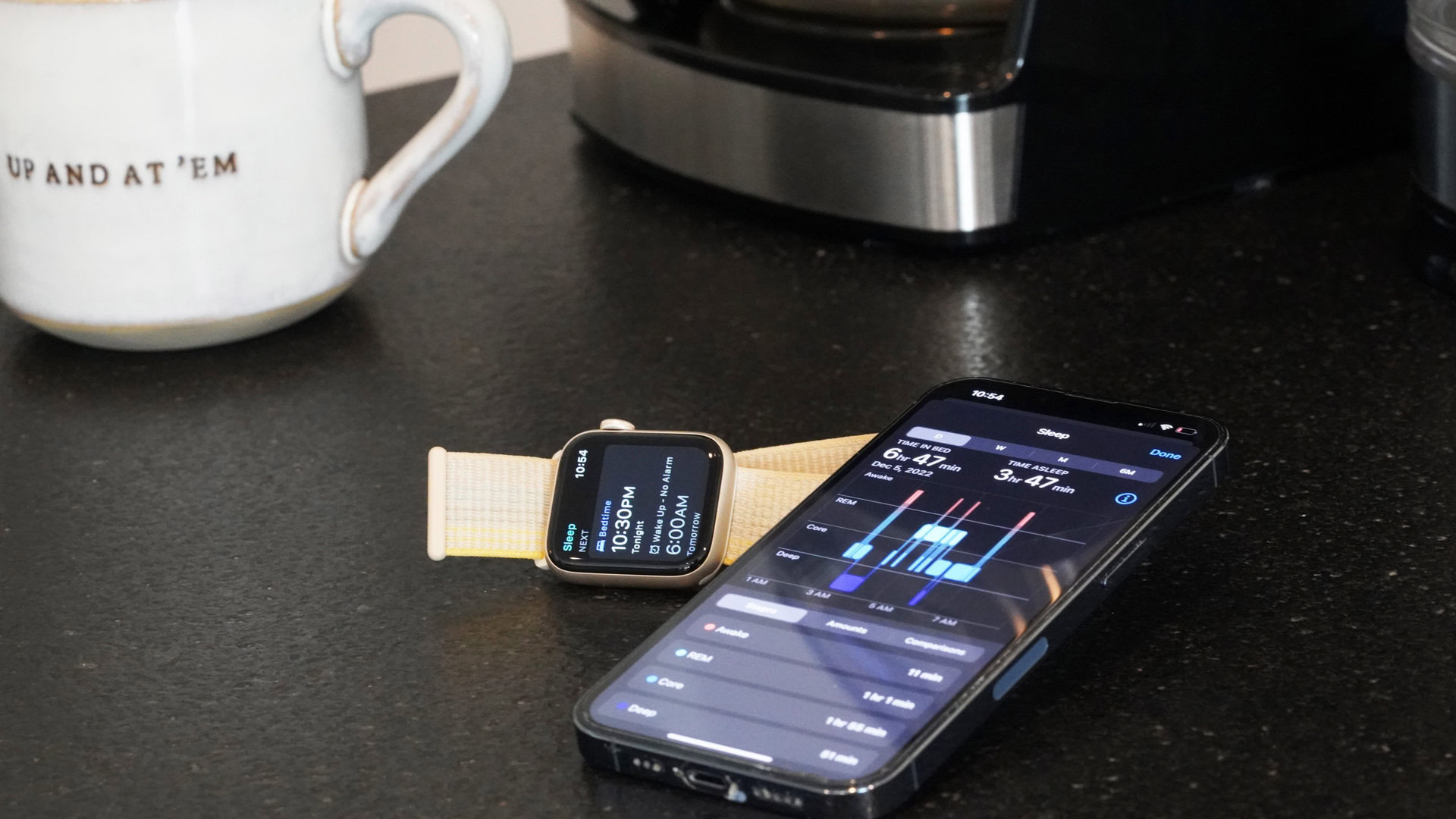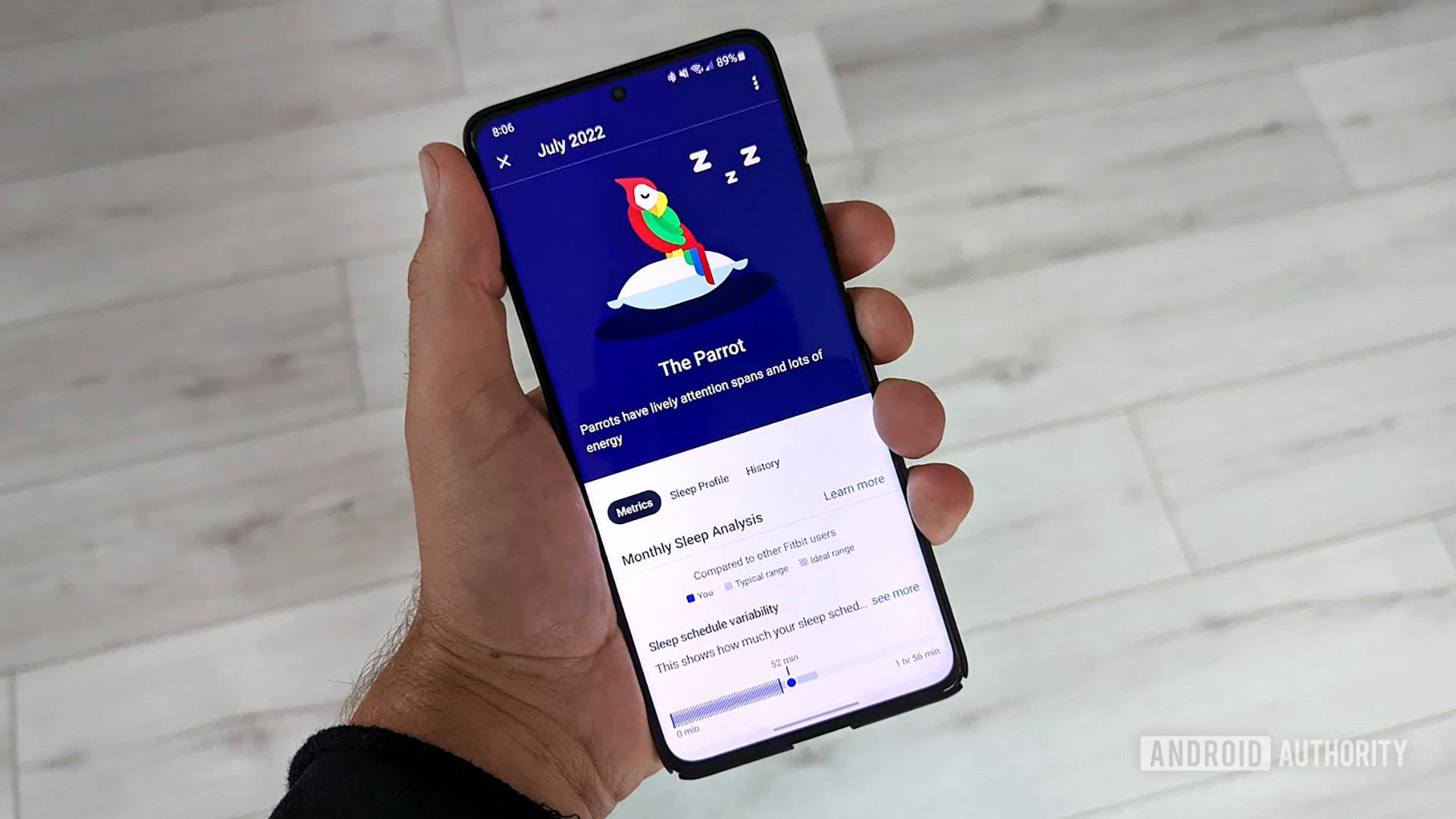I don’t lose sleep over sleep-tracking data and neither should you
Kaitlyn Cimino / Android Authority
I don’t sleep much. While I understand the world functions by daylight, I’ve always found my most productive hours start at a low light setting. Maybe fairytales shouldn’t make midnight sound like such an exciting hour to be losing shoes. When I do make my way to bed, I like to lie awake staring at the ceiling, contemplating pressing matters like “what would my shins look like if I were six feet tall instead of five?” As a wearables enthusiast, I don’t just know this about myself, I have the sleep-tracking data to show for it.
Deeply motivated by grade-based performance, I became obsessed with improving my sleep score because, as everyone knows, there’s no quicker way to quality sleep than stressing about it. Needless to say, I still don’t sleep a whole lot, but I have learned how sleep tracking helps, and how it sometimes doesn’t.
Why it’s not worth stressing over sleep-tracking data

Kaitlyn Cimino / Android Authority
Somewhere between our 20oz coffees and never-ending checklists, many of us have lost the ability to do what should be the easiest thing; absolutely nothing, unconsciously, in comfortable loungewear. Meanwhile, our devices are more capable than ever. The result is that we can check the exact level of our failure to rest in the form of sleep scores and counted Zs.
Sleep trackers are powerful tools, designed to help us hit the hay armed with information. When it comes to identifying trends, setting schedules, and building better habits, they can be invaluable. However, if counting sheep and sipping chamomile haven’t gotten you better rest, you might not find hard data very comforting.
Stressing over sleep-tracking data is neither healthy nor helpful. In fact, stress is one of the single largest contributors to sleep deprivation. According to the CDC, more than 30% of Americans 18 and older get insufficient sleep. If tracking your data is causing anxiety, it isn’t a solution anymore.
Roughly one in three Americans report insufficient sleep, and stress is a leading cause.
Secondly, sleep behavior is largely personal and not everyone needs the same prescribed amount. For starters, the amount of sleep you need changes as you age. Some individuals need far less than the average while others need a bit extra. Still, others thrive with short overnight sleep sessions supplemented by naps during the day. It’s important to identify what is best for your body (and mental state). Sleep trackers can help users identify habits and trends, but shouldn’t be relied upon exclusively.
Most importantly, not all sleep trackers are created equal. Historically, I have always tracked my sleep with an Apple Watch, mainly by default. Though the company recently upgraded its sleep-tracking offerings, Apple Watches aren’t medically-certified devices. They can’t diagnose conditions like sleep apnea and they don’t provide detailed analysis (like the Withings Scanwatch, for example). For someone who rarely hits the mark in terms of quantity, Apple’s minimal qualitative data isn’t ideal or particularly helpful.
How wearables really can be helpful

C. Scott Brown / Android Authority
However, powerful tracking suites, such as Fitbit’s Sleep Profile program, are great examples of how a personalized experience can be extremely beneficial. Fitbit and other companies offer sleep coaching as well as resources to help inform users about their habits. Who doesn’t want to know what adorable animal their sleep mimics? Instead of blindly tracking your sleep stages, effective sleep tracking involves customized sleep goals and detailed comprehensive analysis.
Most importantly, dedicated programs offer insight into your sleep trends over time. Similar to weight management/tracking, context is important when it comes to sleep tracking. Long-term data is key to identifying patterns. For example, I’ve found that I get the least sleep on Friday nights. This isn’t because I have a happening social life, but because I am a child who gets overly excited about the prospect of the weekend as if every Friday night were Christmas eve. For the record, no one brings me presents on Saturday.
Sleep tracking is most beneficial when you review your data over time to identify patterns and long-term trends.
Likewise, some individuals may find they pseudo-hibernate each night during the winter and record extra hours. Others may notice more restless nights when the weather is hot. Whatever your trends unveil, they can often provide actionable information about your behavior.
This is true of most categories recorded by your fitness tracker. Many wearables track a broad range of data points, from SpO2 and heart rate to temperature and menstrual cycles. For the average person, these are best evaluated in terms of patterns, rather than individual data points. For example, unless my device alerts me that my heart rate is high or low compared to my typical trends, I don’t spend too much energy on resting heart rate data. On the other hand, I regularly use my heart rate during workouts to determine cardio zones. Every few weeks, I’ll review my workouts to see if there are any adjustments I need to make for future workouts.
It’s easy to do the same when it comes to sleep data. Rather than obsessing over one iffy night, or a few days of patchy rest, evaluate your behavior over time. Once you identify why your sleep struggles, use your tracker to build a routine. See if you can find patterns and adjust your sleep hygiene accordingly (i.e. control your environment). I rely heavily on sleep mode to cut out distractions and mute interruptions during bedtime. I also find sleep schedules help me prioritize rest rather than trying to squeeze in shuteye willy-nilly.
Managing sleep is key to overall wellness. Used to identify long-term behaviors and make beneficial changes, wearables can be a useful tool in the crusade for better rest. For more information about how devices leverage recovery data, check out the guides below:
For all the latest Technology News Click Here
For the latest news and updates, follow us on Google News.

